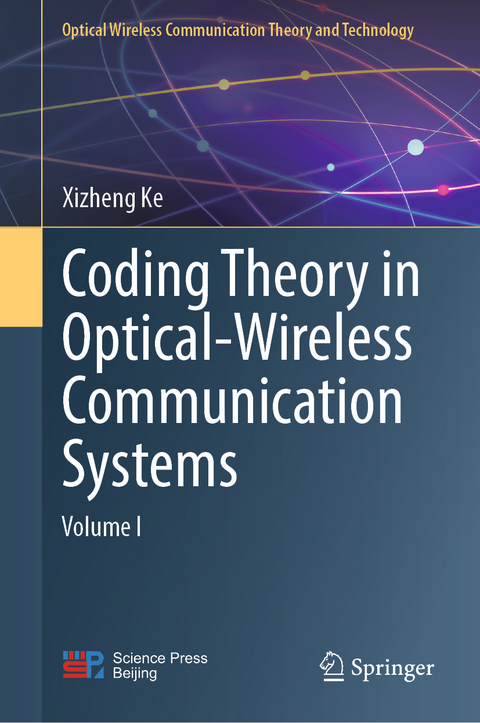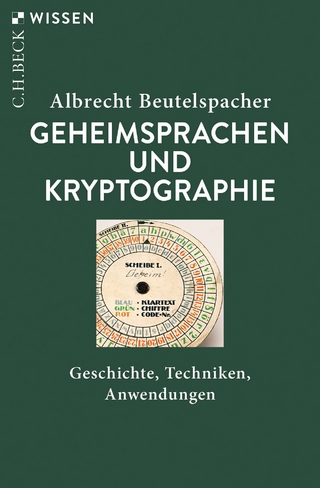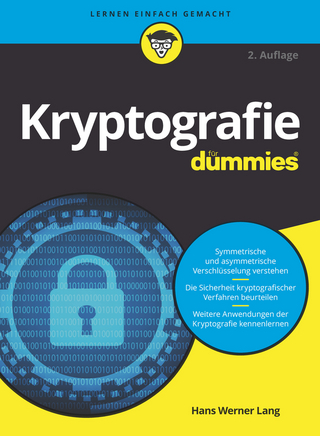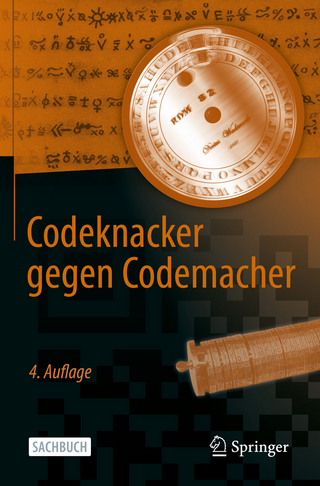
Coding Theory in Optical Wireless Communication Systems
Springer Verlag, Singapore
978-981-19-9836-2 (ISBN)
This book focuses on optical-wireless communication systems. It summarizes the author's optical-wireless communication coding work while carrying out pertinent scientific research programs. The primary topics covered in the book are channel coding, coding modulation, error control (channel coding), and channel equalization. The author's mathematical analysis and experimental studies on the key theoretical issues are discussed in the book. One of the book's outstanding aspects is its thorough and methodical discussion of practical optical-wireless communication challenges. This makes the book especially appealing to readers who are eager to learn about applicable solutions in this area. Researchers, engineers, and graduate students in the subject of telecommunications can all profit from the book. It is appropriate for senior undergraduates, lecturers at colleges and universities, graduate students, and engineering and technical workers involved in optical communication.
Xizheng Ke was the doctor of science, second-level professor, head of the discipline of information and communication systems of Xi'an University of Technology, and deputy director of the Key Laboratory of Military-civilian Joint Construction of Intelligent Cooperative Networks in Shaanxi Province. He was a famous teacher in Shaanxi Province, fellow of Chinese Institute of Electronics, director of Chinese Optical Engineering Society, and executive director of Shaanxi Optical Society. He received a bachelor's degree from Shaanxi Institute of Technology in 1983 and a doctor of science degree from the University of Chinese Academy of Sciences in 1996. From 1997 to 2002, he conducted postdoctoral research at Xidian University and the Second Artillery Engineering College. He is a member of editorial board of "Journal of Electronics," "Infrared and Laser Engineering," "Journal of Electronic Measurement and Instrument," "Laser Technology," "Applied Optics," "Journal of Xi'an University of Technology," “Journal of Time and Frequency,” and “Journal of Atmospheric Science Research.” He is the national science and technology award review expert and a member of the disciplinary review group of the Shaanxi Academic Degrees Committee. In 2000, he won the Outstanding Young Scholar Award of the Chinese Academy of Sciences. In 2009, he was awarded the title of “Excellent Science and Technology Commissioner of Guangdong Province by the Ministry of Science and Technology.” In 2015, he was awarded the title of "A Golden Phoenix on Green Poplar" in Yangzhou City. In 2018, he won the China Industry-University-Research Innovation Award, and in 2019, he won the China Industry-University-Research Innovation Achievement Award. Since 2001, he has won 16 provincial and ministerial science and technology awards, including 1 first prize and 5 second prizes. He has obtained more than 20 nationally authorized invention patents, published 9 monographs in Science Press, and published more than 400 academic papers in domestic and foreign journals. More than 30 Ph.D. candidates have been cultivated in his direction.
Response characteristics of semiconductor lasers and photodetectors.- Analysis of PPM-Coded Modulated Signals.- MPPM coded modulation signal analysis.- Analysis of DPPM-coded modulation signals.- TCM code-modulation technology.- Wavefront Correction System.- Sixty-four-QAM modulation.- Dual-amplitude pulse-position modulation.- Performance analysis of quasi-pulse-position modulation methods.- Error control based on RS codes.- Error control based on turbo codes.- Error control based on LDPC codes.- Research on polar codes in optical-wireless communication systems.- Channel measurements and error-control experiments.- Adaptive coding based on channel estimation.- Time-domain equalization based on adaptive filtering.- Channel blind equalization based on higher-order statistics.
| Erscheinungsdatum | 01.08.2024 |
|---|---|
| Reihe/Serie | Optical Wireless Communication Theory and Technology |
| Zusatzinfo | 109 Illustrations, color; 102 Illustrations, black and white; VIII, 257 p. 211 illus., 109 illus. in color. |
| Verlagsort | Singapore |
| Sprache | englisch |
| Maße | 155 x 235 mm |
| Themenwelt | Informatik ► Theorie / Studium ► Kryptologie |
| Technik ► Elektrotechnik / Energietechnik | |
| Technik ► Nachrichtentechnik | |
| Schlagworte | Channel Equalization • Coded Modulation, Modulation Technique • Error Control (Channel Coding) • Information Source Coding • Laser Communication • Low Density Parity Check Code (LDPC) • Polarization Code • RS Code • Turbo Code • Wireless Optical Communication |
| ISBN-10 | 981-19-9836-1 / 9811998361 |
| ISBN-13 | 978-981-19-9836-2 / 9789811998362 |
| Zustand | Neuware |
| Haben Sie eine Frage zum Produkt? |
aus dem Bereich


